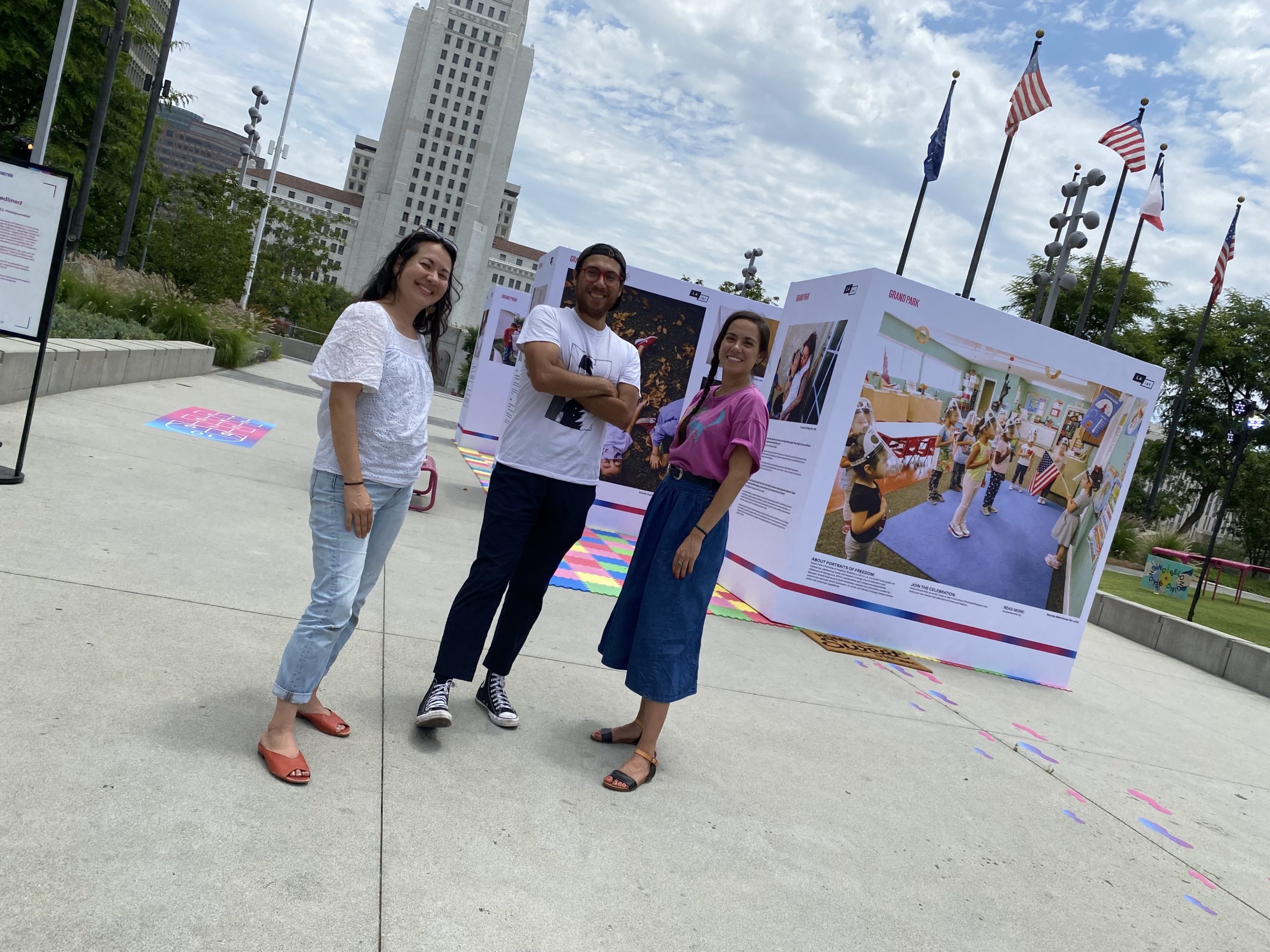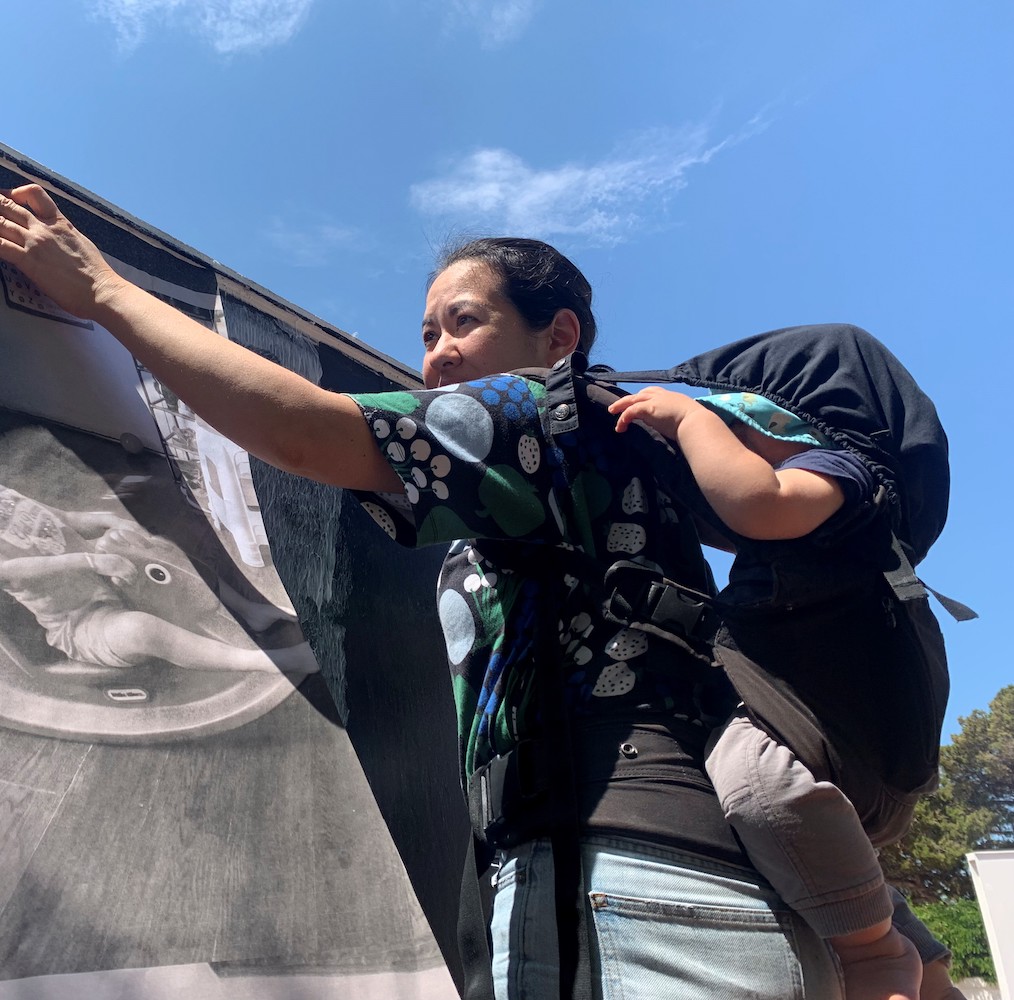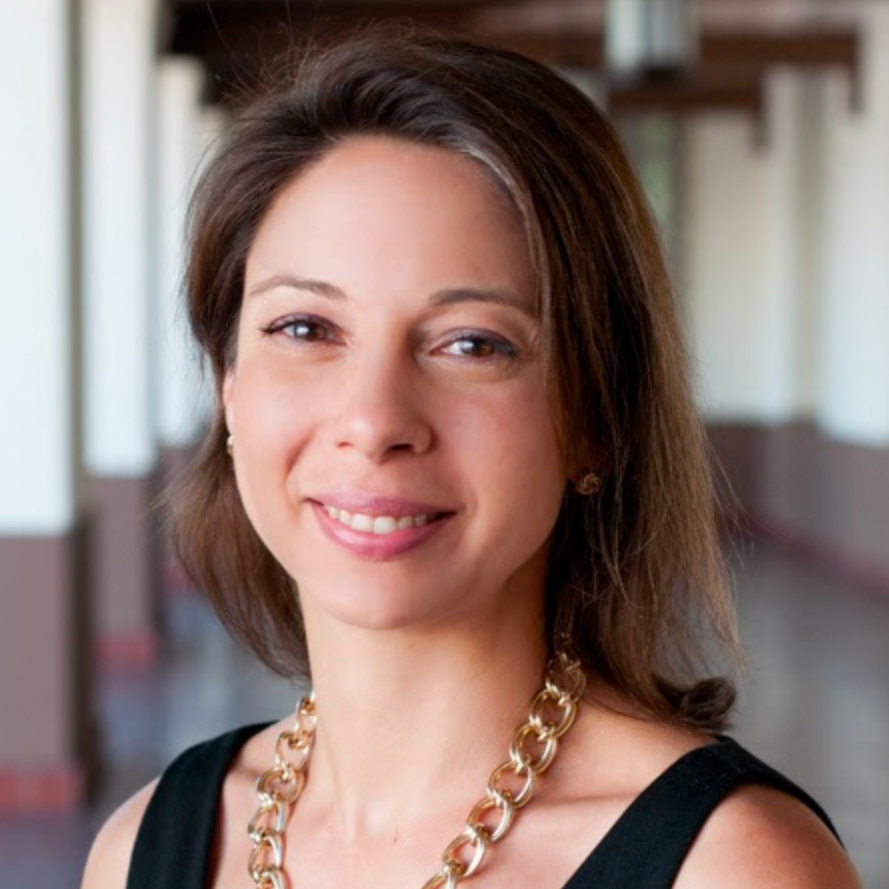March 28, 2023
Stefanie Ritoper is a multimedia journalist, always looking out for creative ways to invite new voices into the conversation.
For more than 15 years, Ritoper has explored the intersection of media and civic engagement. As engagement producer for KPCC/LAist’s early childhood coverage, she works to find creative ways for parents, caregivers, and educators’ real questions and concerns to drive our coverage. Some days she answers questions about pregnancy by text message and others she distributes cameras to parents and child care providers.
Ritoper started her career in documentary filmmaking and then worked in mission-driven organizations, including the UCLA Labor Center and Asian Americans/Pacific Islanders in Philanthropy. Her graduate research in city planning from the Massachusetts Institute of Technology focused on how digital media tools have (and haven’t) transformed how people can participate in their communities.
Over the years, she’s had the great privilege of bearing witness to people telling their stories. She has seen firsthand what it takes for information to travel and for people to get involved. It’s her goal to break down barriers so that people can engage with newsrooms and local civic institutions.
She spends most of my free time negotiating with a six-year-old and chasing after a toddler.
What drew you to the early childhood beat?
I’ve been working at the intersection of media and civic engagement for over 15 years across different sectors in mission-driven organizations. I also have two small children, which makes early childhood issues of particular interest to me. So, when I saw the job posting for engagement producer for LAist, I immediately thought, “Hey, this looks like me!”
In my role, I work to bring voices from parents, caregivers, and educators into our newsroom. Some days I share resources with families by mail and others I distribute cameras to parents and child care providers. Most recently, I’ve been running a text message service that answers parents’ questions about pregnancy, birth, and parenthood.
From your perspective, how has media coverage of pregnancy, young children and child care changed over time?
Before I had kids, coverage of pregnancy, young children, and child care was not at all on my radar. After having children, these issues became directly relevant to my day-to-day life, and I started devouring any and all information about early childhood that came my way.
And maybe that’s part of the issue — often, the broader public doesn’t understand how deeply early childhood issues are tied to the things everyone experiences. For one, how can people work if they don’t have care for their children?
The pandemic underscored how integral early childhood issues are to so many other issues. Media coverage reflected this. Many parents working from home gained an acute understanding of their child care needs, while those working outside the home relied on the great personal and financial risks providers took to stay open.

Credit: Lazer Lambert
What do you hope changes about the coverage of “women’s issues” and early childhood development in the future?
I hope future coverage can draw out the ways that early childhood issues impact everyone and provide context for how our early childhood systems came to be the way they are. I also hope to see reporting that highlights the creative ways that people across the region and the country are tackling these problems.
Recent stories:









